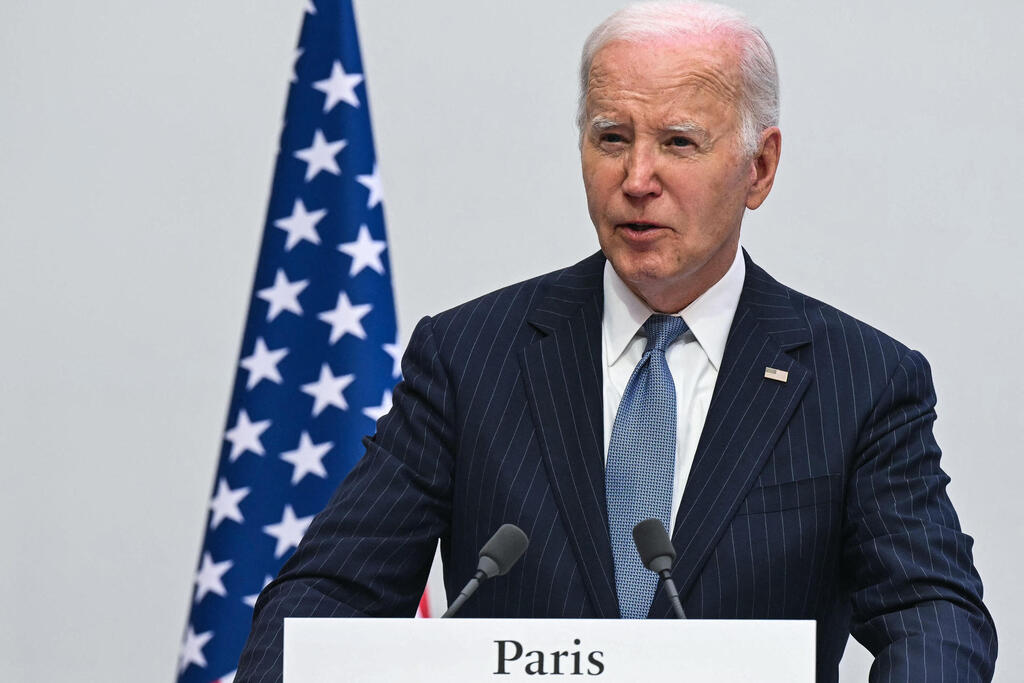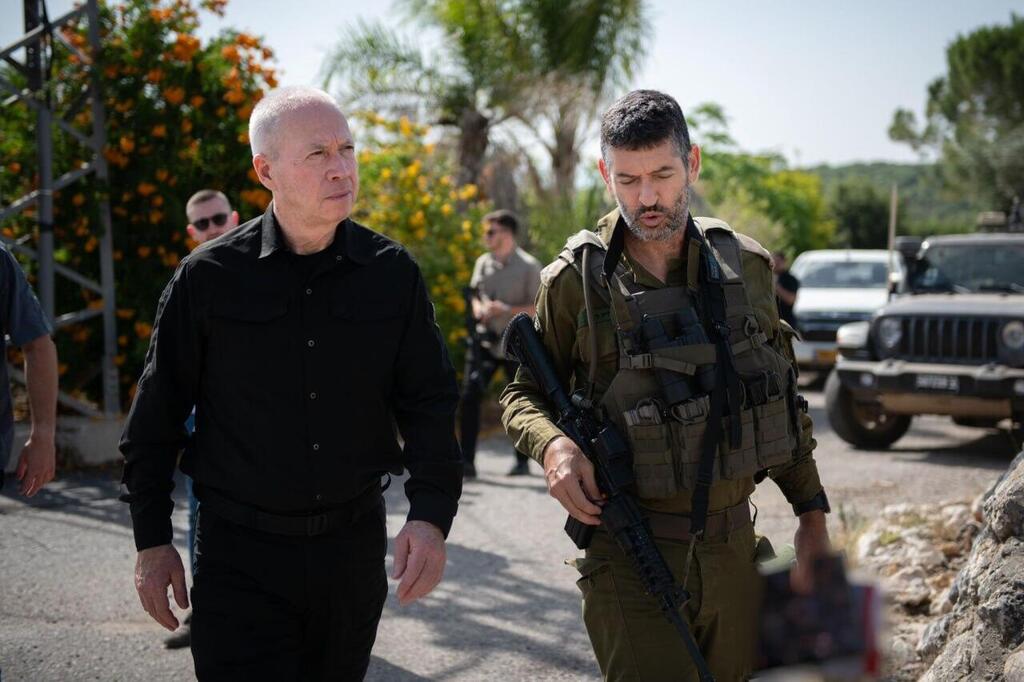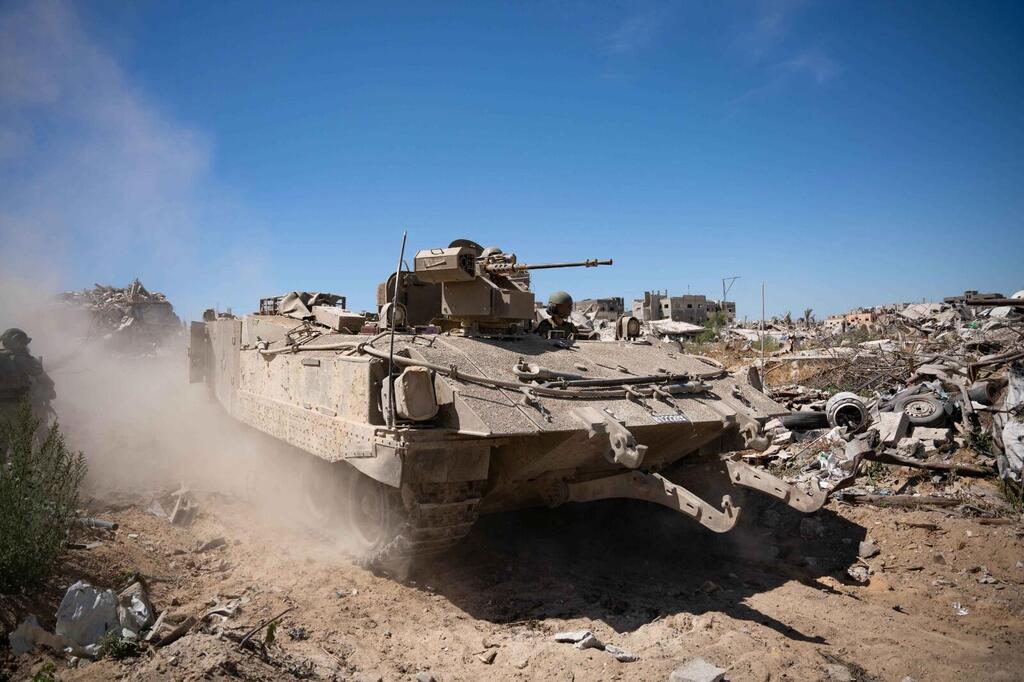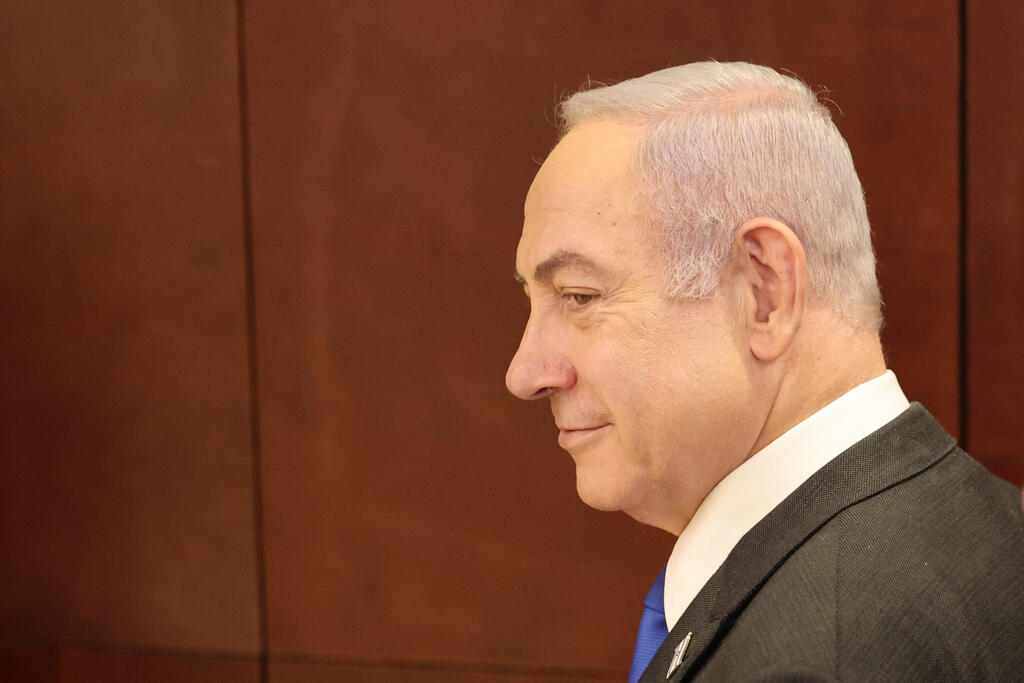The Middle East’s worst-kept secret is that Israel and the United States do not have a coherent plan if there is no hostage deal. This is evident with the Americans. On Wednesday, when Hamas essentially rejected the proposal from Israel and President Joe Biden, the Americans scolded Yahya Sinwar and then declared that there was still room for discussion. This trend in Washington shows complete dependency on an agreement with Hamas. A couple of months ago, U.S. Ambassador to Israel Jack Lew told me in an interview that the deal is the only path forward.
The White House wants the war to stop. Everything else is secondary. This is not exactly a superpower vision forward, but after providing support for about seven months – longer than for any other Israeli war in the past – President Biden also has his own political considerations. A more acute problem is that the U.S., even irrespective of the elections, has no long-term strategy for dealing with Iran and its regional allies. President Teddy Roosevelt once said: "Speak softly and carry a big stick." The continuation of that sentence isn't as widely known: "You will go far." The U.S. will not go far in the Middle East with soft talk and pleas for a deal, normalization, and peace. Its operation against the Houthis is deterring no one, not even the Houthis.
Israel’s illusion of options
At least the U.S. knows where it stands. Israel pretends that it has two options: continue the war for the "total victory" promised by Prime Minister Benjamin Netanyahu or a deal for the return of hostages. On one side are the deal supporters; on the other side is Netanyahu's political circle. This debate is somewhat imaginary.
Hamas itself gives the impression that it is not in a hurry for a deal; This week, the Wall Street Journal published messages allegedly sent by Yahya Sinwar from his hiding place. They demonstrated that he believes Hamas is winning the war, stating that the Palestinian victims "will give life to the veins of the nation, so it will rise to great glory and honor." This is psychosis at its peak. Sinwar, once dubbed "the butcher of Khan Younis," did not receive that nickname for nothing.
Simultaneously, on the Israeli side, there are no indications of real thinking about a long-term alternative that is not a deal. What exactly is its "big stick"? For example, how will victory in the Gaza Strip be defined? Will such a victory be declared only after the elimination of Sinwar and his partners? And a more immediate question: if Hezbollah continues to fire in the north and Israel goes to a broader war there, how can intensive fighting in the south continue, considering the IDF's manpower and limited reserves? This is a fundamental issue. If the IDF launches an operation with a ground invasion into Lebanon and Hezbollah takes a hit, will Nasrallah stop afterward and cut the Gordian knot tying Gaza to Lebanon?
The big story is this: For Israel, the main battlefield is shifting from the south to the north. The defense establishment and Defense Minister Yoav Gallant are determined to try to return the tens of thousands of Israeli residents to the north before the school year starts in September. This requires a determined attempt, military or otherwise, to stop Hezbollah's attacks. Here are the three possibilities:
1. Cease-fire and Quiet: The first possibility, which the IDF finds unappealing, is that the war in the south will stop, Hezbollah will cease fire in the north, and "quiet will be answered with quiet." Or a sort of bluff arrangement will be established, like "the withdrawal of Hezbollah forces to 8 kilometers." Netanyahu has expressed fears of a war with Hezbollah, including in briefings to media he gave after the cabinet's decision on October 11 not to launch a surprise attack on Hezbollah – a decision made against the position of the Chief of Staff and Defense Minister Gallant. The problem is that there is no indication that the war in the south will stop – one that will allow Hezbollah to climb down from its persistent attack on Israel since October 8. It is possible to declare victory in the Gaza war and end it. However, this isn't very certain.
2. Hostage Deal and Operation in Lebanon: A second possibility is an agreement in the south, including the return of hostages, and using this window to initiate a military operation in Lebanon – one that will enforce the implementation of UNSC Resolution 1701 and significantly push Hezbollah away from the border with Israel. The IDF favors this option because the deal will free up forces from the south. However, the political feasibility of its occurrence is low; those who stop the war in the south do not usually do so to start a more difficult war in the north.
3. Shifting Focus to the North: The third and most likely possibility at this point is that there will be no agreement in the South, but the war there will essentially end. The IDF will transfer forces and resources to the north and aim for a short operation, that will severely harm Hezbollah and lead – hopefully – to its withdrawal from the border. This is a difficult challenge, and its essence lies in the next question: will the arrangement achieved after such an operation be significantly better than any limited arrangement reached today, before an escalation?
The implications need to be made clear: In such an IDF operation, Hezbollah is expected to fire thousands of relatively heavy and accurate rockets across the north, Haifa and beyond. Even when both sides, Israel and Nasrallah, restrain themselves, Israel is expected to experience unprecedented levels of destruction. Western intelligence agencies estimate that Iran is likely to join and attack Israel in a broad war with Hezbollah.
"If the assumption so far was that Hezbollah would join if we attack Iran, the updated assessment is that Iran would join if we deeply attack Hezbollah," a senior Israeli source told me. There are also quantifiable challenges: reports that the US continues to delay the arrival of munitions to Israel, even now. The bombs in question are needed for the war in Lebanon.
Ending the war in the south is a priority for senior defense officials. For over a month, the IDF has asserted that the military defeat of Hamas is imminent, having already lost a significant portion of its fighting force and infrastructure. Yet, despite impressive tactical achievements, a clear strategic goal remains elusive. Again and again, Israel's political leaders show limited ability to materialize the IDF tactical achievements into a clear path for regional change.
Strategic Calculations and Political Realities
The IDF believes that the significant tactical gains in Gaza provide an opportunity to transition to the next stage, which could involve ending the war in the south through a hostage deal. This would align with the broader strategic interest of recognizing Israel’s victory over Hamas and moving forward. As security officials assert: "The end of the war does not mean the end of the fighting. Continued intelligence and operational capabilities would ensure ongoing security actions if Hamas were to resume hostilities."
No political figure – Yair Lapid, Benny Gantz, Gallant, and certainly the prime minister – is willing to make clear statements about ending the war. Netanyahu managed to turn this issue into the eleventh commandment: the war will not end before an absolute victory, which he has not defined at all. But behind the scenes, the Israeli administration sounds completely different. They are all afraid – afraid of the public's reaction, afraid of breathing new life into Hamas, and mainly afraid of how the Netanyahu political machine will brand any statement that the war needs to end as high treason.
The perception in the defense establishment is this: there is a significant tactical achievement, which can be amplified if a new military campaign is required in the north. Within the framework of a deal, the war should end. In the words of one of the cabinet members: "The discussion is as if it is all about getting the hostages back. This is a lie. The return of the hostages is almost an excuse, a successful excuse for us. The point is that it is in our interest to get out of this war. And if we do not use the war's end card to return the hostages, we may have to end the war anyway – without the hostages. So, it is better to finish now and bring them home."
Another political source adds: "Look at Hamas' proposal at the Paris Conference. What did we argue with them about? About the number of Palestinian residents who will move north. Israel's situation today in negotiations is much worse. I wish we could accept Hamas's proposal from a few months ago."
"The longer we wait," warns a senior security source, "our achievements will erode. Our citizens are important to us. We saw that their citizens are not important to Hamas at all. There needs to be an international, appointed administration for the Gaza Strip; a group of countries committed to governance and reconstruction there, and it will take at least ten years. It is likely that a local technocrat government will be formed. We need to use the circumstances now to get the hostages because in a month it is likely that our situation will be more complicated. The war is becoming more international. There is a global story here. There is difficulty with the U.S., as with moderate Arab states. Russia, and Iran, are moving fast against our interests. Everything is connected to everything. We need to put a stop and realize achievements. We will continue to hit Hamas in every scenario."
All of these sources refused attribution. I was struck by the immense concern within the defense establishment about new threats and the convergence of distant fronts, particularly Iran. The main fear is that Gaza will turn into a black hole, drawing Israel's most crucial forces while severe threats in the east and north are organizing. This appears to be the plan of the "resistance front": a prolonged war of attrition against Israel. This would continue to cause enormous diplomatic damage, including boycotts, strain relations with the U.S., and wear down Israel's military forces. Many in Israel are insufficiently aware of the costs of war on regular and reserve units, the combination of casualties, physical and mental injuries, and the impact of these factors on the IDF's readiness for war.
The problem is not only related to the current war and its costs. Stories about the Iranian attempt to advance in the weapon group's experiments and the assembly of a military nuclear device have been published in these pages. Other information flowing to the IDF and Mossad emphasizes the need to divert attention far from the Gaza Strip. The majority of the General Staff and the defense establishment as a whole oppose ideas of permanent military governance in the Gaza Strip. As one officer told me, "In terms of resources and force structure, this will become the central mission of the IDF for years to come. Every month we will invest more there, not less. There will be constant friction with the population and with guerrilla forces. You will enter an endless cycle of fortification, enemy capability improvements, additional fortification, and so on. You will prevent tunnels under positions, and they will dig deeper. It’s a question: do we want, and can we, waste 10 years on the Gaza Strip?"
The astonishing thing, of course, is the gap between behind-the-scenes statements and what is being told to the public. In this sense, Netanyahu has been and continues to be remarkably successful. The end of the war is held in his hands as an exclusive certificate; only he can validate that the IDF has won, and anyone who says otherwise will immediately be presented as a traitor wanting Israel's defeat.
Israelis are once again trapped in infinite procrastination, so typical of the current Israeli PM. Never making a decision until he must, sometimes until it's too late. Overall, this method has served Benjamin Netanyahu politically well throughout his long career. It serves him now; his numbers are rising in polls, as Israel sinks in a Gazan war of attrition. But what works for Netanyahu politically is not in the interest of Israeli strategic defense. Netanyahu was never a leader of war. It's obvious that his political maneuvering ability is not enough.






